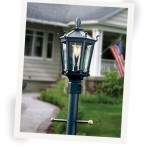How to Keep Tropical Plants Alive in Winter Outdoors
Tropical plants, with their vibrant colors and lush foliage, add a touch of paradise to any outdoor space. However, their delicate nature makes them susceptible to the harsh conditions of winter. As temperatures drop and frost sets in, these plants face a significant threat to their survival. While bringing them indoors for the winter is an option, it is not always feasible or practical. Fortunately, there are strategies for keeping tropical plants alive outdoors through winter, allowing you to enjoy their beauty year-round.
Understanding the Challenges of Winter
Tropical plants are accustomed to warm temperatures, high humidity, and ample sunlight. Winter, with its frigid temperatures, limited sunlight, and often dry conditions, poses a significant challenge for these plants. The primary threats to their survival include:
- Freezing Temperatures: Tropical plants are not adapted to temperatures below freezing, which can damage their cells and cause them to die.
- Frost Damage: Ice crystals forming on plant tissues can pierce cell walls and cause them to rupture, leading to wilting, discoloration, and ultimately, death.
- Reduced Sunlight: Shorter days and cloudy skies during winter reduce the amount of sunlight available for photosynthesis, impacting plant growth and health.
- Dry Conditions: Winter’s cold air and frequent winds can dry out the soil, making it difficult for plants to absorb moisture.
To successfully protect your tropical plants from these threats, it’s crucial to adopt strategies that mitigate their detrimental effects.
Winter Protection Strategies
There are various methods you can employ to safeguard your tropical plants during the winter months. These strategies aim to create a microclimate around the plants, shielding them from the harshest conditions:
1. Location and Microclimate
Selecting the right location for your tropical plants is vital. Choose a spot that is sheltered from strong winds and offers some protection from the full blast of winter sun. Consider:
- South-facing Walls: These walls absorb sunlight and radiate warmth, creating a warmer microclimate.
- Buildings or Fences: Structures can act as windbreaks, reducing the chilling effect of winter winds.
- Overhanging Trees: The canopy of deciduous trees can offer protection from winter sun and wind while allowing for sunlight in the spring and summer.
Additionally, consider using:
- Mulch: A thick layer of organic mulch, such as wood chips or straw, will help insulate the soil and protect the roots from extreme temperatures.
- Burlap or Frost Blanket: Wrapping the plant in burlap or using a frost blanket will create a barrier against frost and cold temperatures.
- Row Covers: These lightweight, breathable fabric covers provide protection from frost and cold while allowing some sunlight to penetrate.
2. Watering and Soil Moisture
Tropical plants need regular watering, even during winter. However, the frequency and amount of water will vary depending on the plant species and the weather conditions. Remember, overwatering can be as detrimental as underwatering. Here are some general guidelines:
- Water Deeply: Irrigate the soil thoroughly, ensuring that the water reaches the roots. Allow the top layer of soil to dry out slightly before watering again.
- Avoid Watering During Freezing Temperatures: Watering when the ground is frozen can lead to ice formation, further damaging the roots and preventing nutrient uptake.
- Mulch: Mulch helps retain moisture and keeps the soil from freezing too quickly. However, ensure the mulch does not touch the plant stems to prevent rot.
3. Pruning and Maintenance
While tropical plants may seem dormant during winter, they still require some maintenance. Pruning can help improve air circulation and prevent the spread of diseases.
- Remove Dead or Damaged Leaves: These leaves can harbor pathogens and attract pests.
- Trim Back Excessive Growth: This helps to reduce the plant’s overall size and make it easier to cover with protection.
- Inspect for Pests and Diseases: While plants are dormant, pests like scale and mealybugs can be more active. Monitor for signs of infestation and take appropriate action.
Following these steps can significantly increase your tropical plants’ chances of surviving the winter and thriving when warmer temperatures return.
Important Considerations
While these strategies offer effective protection, it is essential to consider the specific needs of each plant species:
Tender vs. Hardy Tropical Plants: Some tropical plants are more tolerant of cold temperatures than others. Tender plants, such as bananas and bougainvillea, require more protection than hardier plants like palms and hibiscus.
Microclimate and Location: Different locations experience different winter conditions. Your plant's specific location within your yard will also influence its exposure to cold and wind. Consider microclimates and adapt your protection methods accordingly.
Experimentation and Observation: No two winters are identical. Closely observe your plants throughout the season and adjust your care practices as needed. Monitor the plant's growth, leaves, and overall health. If you notice any signs of stress, provide additional protection.
Protecting your tropical plants from the harsh conditions of winter requires careful planning and consistent attention. By understanding the challenges of winter and employing effective protection strategies, you can enjoy the beauty and vibrant foliage of these plants throughout the year.

Simple Tip To Keep Tropical Plants Alive Through Winter

Garden S 10 Genius Ideas To Keep Plants Warm In Winter Gardenista

How To Keep Indoor Plants Alive In Winter Get Busy Gardening

How To Keep Indoor Plants Alive Through The Winter Well Good

How To Overwinter Plants The Complete Guide Get Busy Gardening

Tips For Keeping Outdoor Plants Alive During Winter

How To Overwinter Tropical Plants Indoors

How To Keep Outdoor Plants Alive During Winter Backyard Sidekick

How To Keep Indoor Plants Alive In Winter Get Busy Gardening

How To Keep Plants Alive While Away
Related Posts







